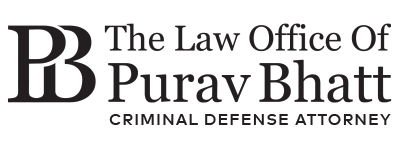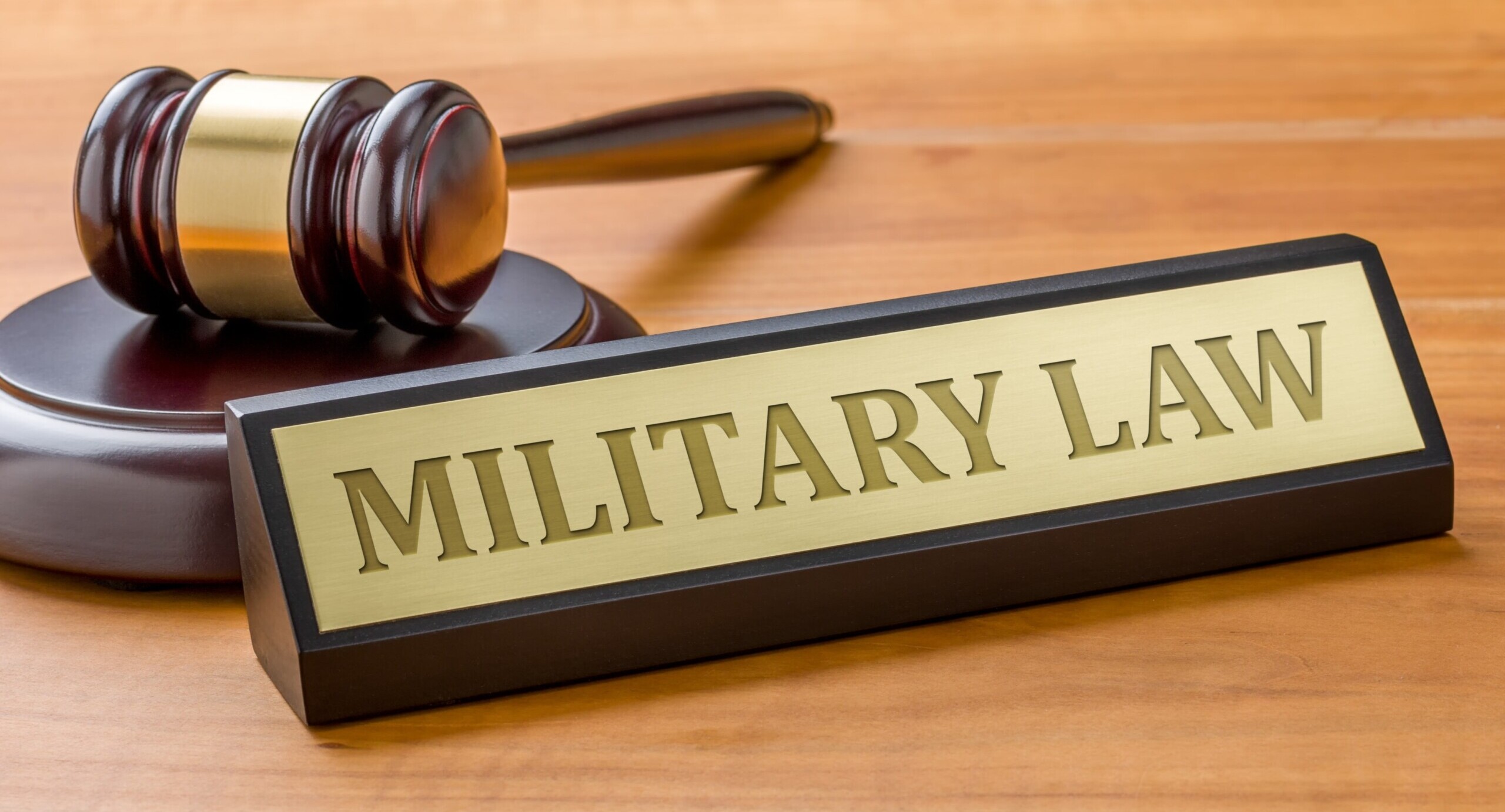Chicago Military Defense Lawyer
Military law is governed by the Uniform Code of Military Justice (UCMJ), which establishes both the substantive and procedural laws regulating the military justice system for service members. The UCMJ includes punitive articles, the Rules for Court-Martial (R.C.M.), and the Manual for Courts-Martial (M.C.M.), providing a comprehensive legal framework for addressing offenses within the military.
Military defense attorneys must deeply understand both military law and the UCMJ to represent service members effectively. This expertise allows them to navigate the system’s complexities and offer robust legal representation.
The appeal process for court-martial convictions is also governed by the UCMJ, ensuring a structured means for reviewing decisions.
With years of experience in military and criminal defense, attorneys Purav Bhatt and Anthony Villalobos at The Law Office of Purav Bhatt bring the knowledge and dedication necessary to stand by service members facing legal challenges. If you or a loved one is confronting a military charge, contact us for a free consultation and allow us to build a strong defense together.
The Role of a Military Defense Lawyer
Military defense lawyers serve a critical role in representing service members across all branches of the military, including the Army, Air Force, Navy, Marine Corps, Coast Guard, and Space Force. These military attorneys evaluate cases by providing unbiased assessments and identifying successful strategies tailored to the specifics of military law.
Service members under investigation for UCMJ violations need strong legal representation. Chicago military defense lawyers handle various legal issues, from motions to investigative errors, aiming for the best possible outcomes through effective negotiation. This legal expertise enhances the likelihood of a favorable outcome and protects the rights of military personnel throughout the process.
Navigating the military justice system requires not only knowledge of military law but also an understanding of the unique culture and disciplinary systems within the military. An experienced military lawyer with military law experience is well-versed in these areas, making them invaluable allies for service members facing legal challenges.
Why You Need an Experienced Military Defense Attorney
Navigating the military justice system requires a specialized approach, as military law differs significantly from civilian law. Here’s why hiring an experienced military defense attorney is essential for service members facing charges under the Uniform Code of Military Justice (UCMJ).
1. In-Depth Understanding of Military Law and Culture
Military defense attorneys bring essential knowledge of the Uniform Code of Military Justice (UCMJ), a complex set of regulations governing service members’ conduct. This unique legal framework includes both substantive laws and procedural guidelines through the Rules for Court-Martial (R.C.M.) and the Manual for Courts-Martial (M.C.M.), requiring a lawyer with extensive experience in military court processes. Additionally, understanding military culture and disciplinary systems is vital to representing service members effectively, making a military defense attorney an invaluable ally.
2. Importance of a Strong Track Record
Choosing an attorney with a successful track record in military cases is crucial for ensuring an effective defense. Evaluating a lawyer’s experience and success rate in court-martial cases and similar military matters can provide insight into their capabilities. Consulting directly with the attorney who will represent you also allows for clear communication and a thorough understanding of your case, building a foundation of accountability and trust.
3. The Risks of Self-Representation in Military Court
Representing oneself in military court is not only challenging due to the technical nature of military law but also significantly limits the chances of a favorable outcome. Military proceedings often involve nuanced legal arguments and rigorous procedural standards that require professional representation. Seeking legal counsel promptly can help preserve your rights and improve your chances of a fair resolution.
At The Law Office of Purav Bhatt, our team combines extensive trial experience across both military and civilian courts. Led by Purav Bhatt, our attorneys bring a comprehensive understanding of the military justice system and a commitment to defending service members. With a solid history in criminal and civil litigation, we are equipped to handle military court cases effectively.
Common Military Offenses and Legal Issues
The UCMJ outlines various military offenses, including sexual assault, drug-related incidents, and theft. Military defense lawyers have defended against offenses such as sexual assault, manslaughter, fraud, aiding the enemy, and drug offenses. These offenses can have severe consequences, including negative service characterizations, lost retirements, jail time, and sex offender registration.
The primary focus of military offenses is their potential to end a career. Military defense lawyers play a crucial role in presenting defenses that challenge the evidence presented in court-martial cases. The Law Office of Purav Bhatt handles cases such as sexual assault court-martials, separation boards, and military investigations.
Service members must understand potential legal issues and offenses. Knowing the consequences and having a strong defense strategy significantly impacts case outcomes.
Navigating the Military Justice System
Commanders in the military have significant discretion over whether to charge an offense and how to handle the consequences. They are responsible for making decisions in lower-level military adverse actions and can choose to initiate administrative procedures or take no action at all. Investigations for serious military offenses are typically led by specialized agencies like the Army’s Criminal Investigation Command.
Court-martial proceedings can occur at different levels, including summary, special, and general, each with varying procedures and potential penalties. The general court-martial is the highest military trial level, reserved for serious crimes and necessitating an investigation similar to a civilian grand jury. An Article 32 hearing acts as a preliminary investigation for general court-martial cases, similar to a grand jury in civilian law, and can lead to a court-martial trial.
Accused service members in court-martial trials are entitled to legal representation, which can include military or civilian lawyers. The military justice system can be complex, but the right legal representation helps service members protect their rights and achieve favorable outcomes.
Court-Martial Process: What to Expect
Court-martials address serious offenses, with levels including summary, special, and general. General court-martial handles the most severe offenses with procedures akin to civilian trials. The Article 32 investigation serves a role akin to a civilian grand jury, reviewing charges before they go to a general court-martial.
The first stage of a court-martial involves investigation and the preferral of charges based on the findings. After charges are referred to a court-martial, the trial includes stages such as arraignment, evidence presentation, and closing arguments. Military judges oversee court-martial trials, while prosecuting attorneys are generally JAG lawyers.
Sentencing after a conviction occurs immediately following the trial, which differs from civilian practices where sentencing may be delayed. The clemency phase allows a convicted military member to request beneficial actions from the Convening Authority post-trial. Military defense lawyers often negotiate plea agreements to obtain more favorable outcomes for their clients.
Court-Martial Appeals
Appeals from court-martial convictions can be reviewed by military appellate courts and potentially the U.S. Supreme Court. The appellate process in military justice starts with a review by a convening authority, and significant decisions can be appealed to the Supreme Court. The appeal process varies depending on the severity of the sentence received.
A court-martial conviction can be appealed to specific military courts of appeal based on the branch of service. If an appeal to the military court of appeals fails, the next option is to appeal to the Court of Appeals for the Armed Forces.
The Court of Appeals for the Armed Forces reviews cases primarily for legal errors from the military appellate court. In rare circumstances, the U.S. Supreme Court may hear an appeal after CAAF.
Administrative Actions and Nonjudicial Punishment
Commanders have several options for addressing offenses, including taking no action or initiating administrative procedures. Administrative actions may be taken for minor military offenses, focusing on correction rather than punishment. Nonjudicial punishment under Article 15 of the UCMJ is a corrective measure for minor offenses, not a trial.
Service members have the right to confront witnesses and evidence against them during NJP proceedings. Active duty personal and character statements can be submitted to support a military member’s case during NJP.
Company Grade NJP can include a maximum of 14 days restriction and 7 days of pay forfeiture. If a military member refuses NJP, the case may be dropped, lead to administrative actions, or be referred to court-martial.
Military Investigations: Protecting Your Rights
Military investigations into serious offenses are typically conducted by criminal investigative agencies. During a military investigation, service members may face significant repercussions, including being issued a no-contact order, removed from duties, and put on hold in their careers. Legal representation from the start of an investigation can significantly impact the outcomes of military legal proceedings.
Military defense attorneys safeguard service members’ rights during investigations and legal proceedings. Civilian military lawyers ensure these rights are upheld throughout the investigative process. They can challenge improper evidence collection methods, potentially dismissing critical evidence from the investigation.
Impact on Career and Security Clearance
Following a conviction, the military’s convening authority reviews the case automatically, which can lead to mitigating the sentence. Petitions for clemency can be submitted at any time during the appeal process to reduce sentences or overturn convictions. Military legal issues can have significant impacts on a service member’s career and security clearance.
Civilian military lawyers provide emotional support to service members during investigations, helping to alleviate the stress involved. Knowing the potential impacts and having a strong defense strategy is vital for maintaining one’s career and reputation in the military.
Protect Your Military Career—Contact The Law Office of Purav Bhatt Today
At The Law Office of Purav Bhatt, we take pride in being Chicago’s trusted trial lawyers, bringing our extensive experience in both criminal and civil litigation to defend clients across the U.S., including military service members and their families. With deep knowledge of military law, we represent clients at military installations in every branch, providing skilled advocacy for cases ranging from court-martial proceedings to separation boards and military investigations. Unlike many criminal defense attorneys, our team is equipped to navigate the unique complexities of military cases, offering both experience and commitment.
Contact our Chicago office today at 773-791-9682 or reach out online to schedule a free, confidential consultation with a skilled military defense attorney. For more insights, explore our UCMJ criminal defense and Separation Board resources to understand how we can support your military legal needs.


